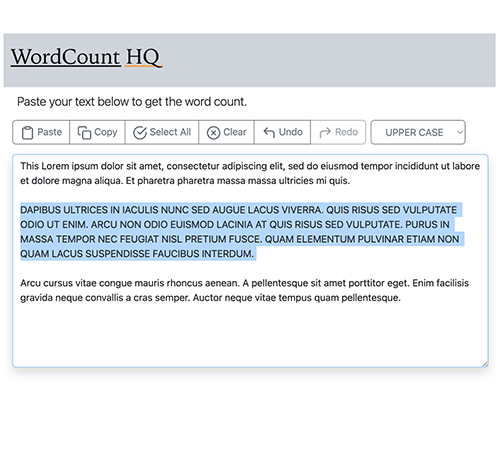How to Write the Perfect Length for Any Article
Word count is not just a number. It is a crucial factor that affects how well your article performs and how well your readers enjoy it. Whether you are writing for a blog, a magazine, a newspaper, or a website, you need to know how long your article should be to achieve your goal, satisfy your audience, and optimize your platform.
How do you find the sweet spot between too short and too long? There is no one-size-fits-all answer, as different types of articles have different purposes, audiences and formats. Based on scientific research, here are some general guidelines and best practices that can help you craft articles that are just right for your readers.
Why Word Count Matters
Word counting is not just a technical exercise. It has several benefits for both writers and readers. For writers, word counting helps them organize their thoughts and structure their article. By setting a word limit, they can plan how much space they have to introduce their topic, develop their arguments, and conclude their article.
Word counting also helps writers avoid unnecessary fluff and filler words. By trimming down their article to the essential points, they can improve their clarity, conciseness, and coherence.
Word counting is not just a technical exercise. It has several benefits for both writers and readers.
For readers, word counting helps them get the information and value they are looking for. By writing articles that are appropriate for their genre, niche, and audience, writers can deliver content that meets their expectations and preferences.
Word counting also helps readers optimize their time and attention. By writing articles that are not too short or too long for their platform, writers can capture and retain their interest and engagement.
How Long Should Your Article Be?
While word count matters, there is no fixed rule for how long an article should be. Different types of articles have different average word counts that can serve as a reference point. However, these averages are not strict rules that writers have to follow. Depending on their topic, audience, purpose, and platform, they may need to adjust their word count accordingly.
Here are some examples of average word counts for different types of articles:
- Blog posts: Blog posts are typically informal, personal, and conversational. They can range from 300 to 2000 words, depending on the topic, tone, and purpose. A good average is around 800 words, which is enough to cover a specific topic in depth without losing the reader’s interest.
- News articles: News articles are usually factual, objective, and timely. They can vary from 200 to 1000 words, depending on the complexity and significance of the news story. A good average is around 500 words, which is enough to answer the basic questions of who, what, when, where, why, and how.
- Feature articles: Feature articles are usually longer, more detailed, and more creative than news articles. They can range from 1000 to 5000 words, depending on the subject matter, style, and publication. A good average is around 2500 words, which is enough to explore a topic in depth with anecdotes, quotes, and analysis.
- Academic articles: Academic articles are usually formal, scholarly, and research-based. They can vary from 3000 to 10000 words, depending on the discipline, journal, and methodology. A good average is around 6000 words, which is enough to present a clear thesis statement, literature review, methodology, results, discussion, and conclusion.
How to Write the Perfect Length for Any Article
While these average word counts can give you a general idea of how long your article should be. Depending on your purpose, you may need to adjust your word count accordingly. Here are some best practices to write the perfect length for any post:
- Goal: Before you start writing, ask yourself what you want to achieve with your article. Do you want to inform, persuade, entertain, or educate your readers? Do you want to generate leads, sales, traffic, or engagement? Your goal will help you determine how much information you need to include in your article and how long it should be.
- Audience: After you define your goal, think about who you are writing for. Who are your ideal readers? What are their needs, interests, problems, and questions? How much time and attention do they have to read your article? Your audience will help you determine how much detail you need to provide in your article and how long it should be.
- Platform: Finally, consider where you are publishing your article. Is it on your own blog or website? Is it on a third-party site or platform? Is it on print or online? Your platform will help you determine how much space you have to write your article and how long it should be.
By following these best guidelines and using word counting tools like WordcountHQ, you can write articles and posts that are fit for purpose. Word counting is not just a number. It is an art that can help you create content that is engaging and valuable for your readers.




